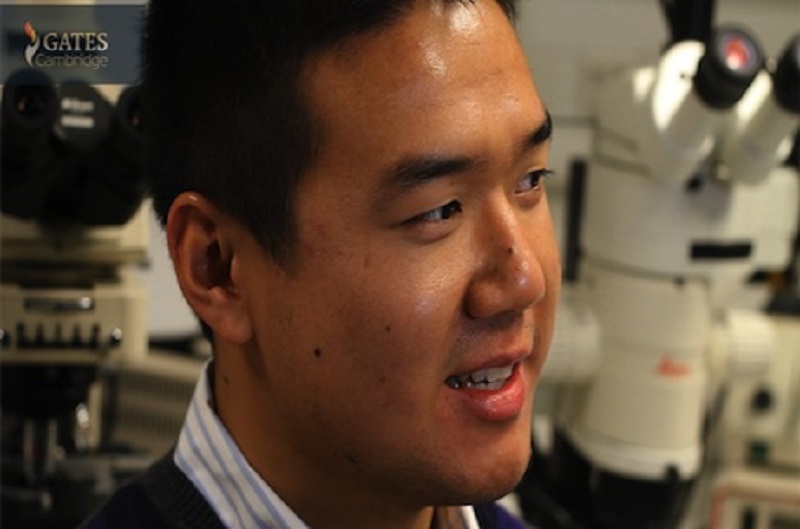
Stan Wang is to speak about his research on non-embryonic stem cells at TEDxOxbridge next month.
A Gates Cambridge Scholar will speak about his research into the creation of non-embryonic stem cells at a TEDxOxbridge event in Oxford in June.
Stan Wang [2011] will speak on 1st June about the research he has been doing on non-embryonic stem cells for use in regenerative medicine with recent Nobel Prize winner, Sir John Gurdon. He works on a technique that takes tissue from any part the body and gives it embryonic stem cell-like properties. Specifically, he screens for and identifies factors – those missing links between the two systems – via nuclear transfer that can improve the generation of iPS [induced pluripotent] cells. If perfected, he says, this could bypass the need for stem cells from human embryos in research and therapy.
He says technologies like this could have a significant impact on shaping the future of medicine and transforming human health.
Stan is currently a PhD student in Surgery. In a recent blog on the Gates Cambridge site, he wrote: "A new revolution in modern medicine is about to dawn. In the coming years, we will be able to create customised cell lines to screen drugs in ways we never could before. In the coming decades, additional advances on these technologies will allow us to regenerate or even replace lost tissue or organs. The day will come when, if a patient needs new heart tissue, we will be able to grow it from his or her own skin cells; modern alchemy, if you will. Of course, there are still limitations that must be overcome before these technologies can be applied safely to patients, but we are moving ever closer to the realm of therapeutic possibility."
The theme of this year's TEDxOxbridge is Timeless Ideas and will be about "the ideas and initiatives that have stood strong throughout the evolution of our society". TEDxOxbridge says the conference will "showcase speakers that encapsulate the past, present and future of art, technology, science, literature, and other important, relevant, timeless topics."












